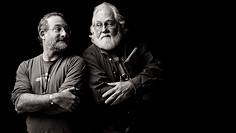Natural Histories
Natural history is a practice and a body of knowledge. It can be both a personal path and a professional undertaking. It has been given many definitions and can be claimed by no single discipline or knowledge holder. And yet, there are consistent elements in definitions collected from a wide range of practitioners, from poets to ecologists, geologists to expeditionary artists, resource managers to science teachers: Attention to and representation of nature, a focus on patterns observed at the organismal to landscape level, the value of accuracy. The Natural Histories Project explores experiences and values that combine to create a wide range of natural histories, and through this exploration, we hope to initiate an international conversation on the value and future of Natural History. We invite you to join the conversation. Spread the word, put your own comments on the site, and tell us what speaks to you.
The Workshops
The Natural Histories Project was produced as a part of four workshops held in 2011 with support from the National Science Foundation and the University of Washington College of the Environment. These workshops were designed to initiate a dialogue between a broad range of naturalists (from ecopsychologists, ecologists and geologists to middle school teachers, environmental educators and university presidents) about the re-imaging of natural history. All four workshops focused on the future of natural history, and the workshops focused on four broad areas: society, education, environmental research and environmental management. Biographies of the participants are included on each conversation page.
The Conversations
The audio and photographs displayed here were collected by Benjamin Drummond and Sara Joy Steele during the working meetings. Participants sat down in pairs to ask questions, share ideas and tell stories about the future of natural history. This site showcases excerpts from those conversations in the spirit of bringing the discussion to a larger community. You can read more about the process on Benj and Sara's blog.
